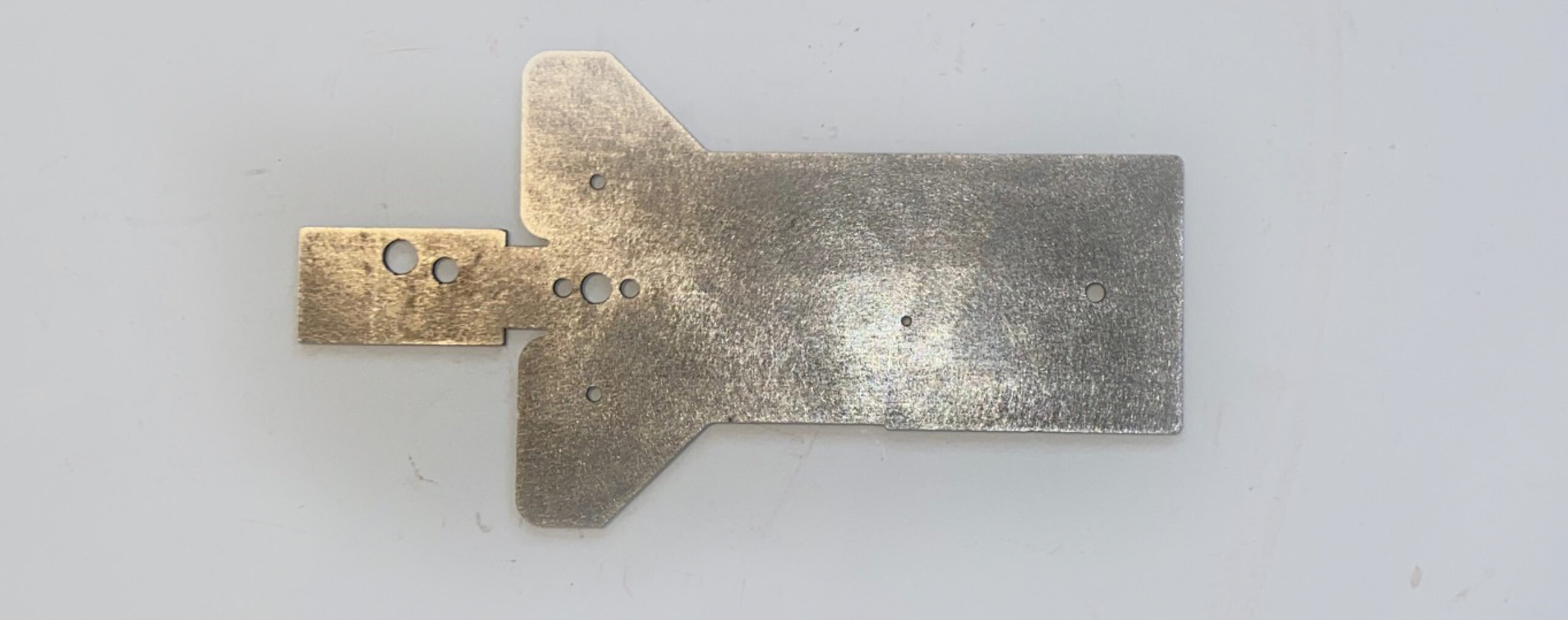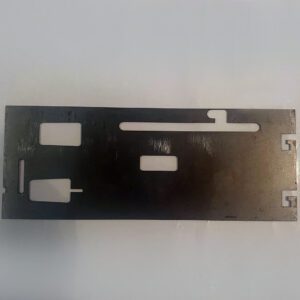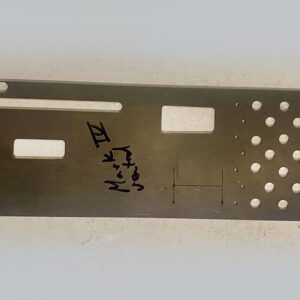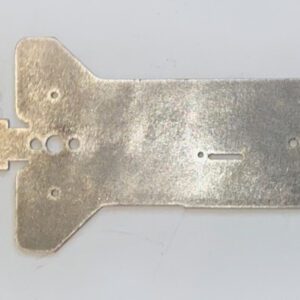Description
This is a true original spec Cobray reciever flat to make a full size MAC 10 (M10) in .45 cal. or 9mm. This is actually better quality than the mass produced stamped vintage units that often had sharp edges. Made with quality steel and precisely machined.
NO FFL or paperwork is required.
Background
The Military Armament Corporation Model 10, officially abbreviated as “M10” or “M-10“, and more commonly known as the MAC-10, is a compact, blowback operated machine pistol/submachine gun that was developed by Gordon B. Ingram in 1964. It is chambered in either .45 ACP or 9mm. A two-stage suppressor by Sionics was designed for the MAC-10, which not only abates the noise created, but makes it easier to control on full automatic (although it also makes the gun far less compact and concealable).
Military Armament Corporation never used the “MAC-10” nomenclature in its catalogs or sales literature, but “MAC-10” is frequently used by Title II dealers, gun writers, and collectors. For a decade, the semi-automatic pistol version of the weapon was forbidden in the U.S. under the assault weapons ban enacted by Congress in 1994.
Technical Information
| Place of origin | United States |
| In service | 1970–present |
| Used by | See Users |
| Designer | Gordon B. Ingram |
| Designed | 1964 |
| Manufacturer | Military Armament Corporation |
| Unit cost | $120 |
| Produced | 1970–1973 |
| Specifications | |
| Mass | 2.84 kg (6.26 pounds) empty without suppressor |
| Length | 269 mm (10.7 inches) with stock removed |
| 295 mm (11.6 inches) with stock retracted | |
| 548 mm (1 foot 9.6 inches) with stock extended | |
| 545 mm (1 foot 9.45 inches) with stock retracted w/suppressor | |
| 798 mm (2 feet 7.4 inches) with stock extended with suppressor | |
| Barrel length | 146 mm (5.75 inches) |
| Width | 50 mm (1.96 inches) without suppressor |
| 54 mm (2.13 inches) with suppressor | |
| Cartridge | .45 ACP (11.43×23mm) |
| 9×19mm Parabellum | |
| Action | Straight blowback |
| Rate of fire | 1,200-1500 rounds/min. (9mm) |
| 1,090 rounds/min. (45 ACP) | |
| Muzzle velocity | 366 m/s (1,201 ft/s) for 9mm |
| 280 m/s (919 ft/s) for .45 ACP | |
| Effective firing range | 50 meters (.45 ACP) |
| 70 meters (9×19mm Parabellum) | |
| Maximum firing range | 100 meters (for .45 ACP) |
| Feed system | 30-round detachable box magazine (.45 ACP) |
| 32-round detachable box magazine (9×19mm) | |
| Sights | Iron sights |
Design
The MAC-10 is built predominantly from steel stampings. A notched cocking handle protrudes from the top of the receiver, and turning the handle 90°, locks the bolt, and acts as an indicator the weapon is unable to fire. The MAC-10 has a telescoping bolt, which wraps around the rear face of the barrel. This allows a more compact weapon and balances the weight of the weapon over the pistol grip, where the magazine is located. The MAC-10 fires from an open bolt, and the light weight of the bolt results in a rapid rate of fire. In addition, this design incorporates a built in feed ramp as part of the trigger guard (a new concept at the time) and, to save on cost, the magazine design was recycled from the M3 Grease Gun. The barrel is threaded to accept a suppressor, which works by reducing the discharge’s sound without attempting to reduce the speed of the bullet. This works well with the .45 ACP versions, as most loads are subsonic already, as opposed to special, low-powered subsonic loads usually required for suppressed 9mm weapons. At the suggestion of the United States Army, the suppressor also acts as a foregrip to inhibit muzzle rise when fired. Ingram added a small bracket with a small strap beneath the muzzle to aid in controlling recoil during fully automatic fire. The original rate of fire for the MAC-10 in .45 ACP is approximately 1090 rounds per minute. That of the 9mm is approximately 1250, and that of the smaller MAC-11 in .380 ACP is 1500 rounds per minute.
Noting the weapon’s poor accuracy, in the 1970s, International Association of Police Chiefs weapons researcher David Steele described the MAC series as “fit only for combat in a phone booth”.






Reviews
There are no reviews yet.